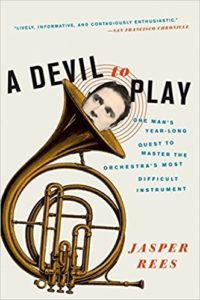As a young Asian girl with shallow roots in Virginia and a voracious reading appetite, I was absolutely seduced by Margaret Mitchell’s Gone With The Wind. Once I settled permanently in America, moving north over the course of a decade from Virginia to DC to Maryland, widening my circle of colleagues and friends, and becoming more aware, politically and sociologically, of the realities around me, I realized why a friend (shoutout to Colin!) of mine hated GwtW so much: because it is bullshit that perpetuates bullshit and hoodwinks generations into romanticizing a system founded on abuse and immorality. There is nothing good about slavery. NOTHING. All the “advantages” purportedly offered to the slave come at a price too high to be humane, and anyone who defends this hideous devil’s bargain (which, for the record, the slaves did not enter into willingly) is not a good human being. And then 45’s election and subsequent grotesque abuses of office empower white supremacists to crawl out from their holes, and it becomes hard to forget that the racism that allowed slavery to happen in the first place is alive and thriving in the Land of the Free.
Into this milieu comes Ben H Winters’ Underground Airlines, an alternate history that imagines a modern-day America where the Civil War never happened and the Hard Four states of the deep south were allowed to keep slavery, with the practice subsequently protected in the Constitution. I personally did not have an interest in reading this book till a colleague (shoutout to Doug!) brought it up in a conversation regarding, I believe, cultural appropriation. He wanted to know what I felt about a white guy writing from the first-person narrative of a black guy. I immediately put myself on a waitlist for the book from the library so I could give him an answer specific to this book. And no, I don’t think it’s automatically verboten for a person to write as if they’re a member of another race/religion/nationality etc. because writing isn’t representation in the way that acting is. Writers aren’t denying jobs to an already disadvantaged minority by writing their books, or erasing the presence of other writers with their own. And generally, I’ve found most writers who write “outside their race” to be sympathetic to their subjects.
Of course, sympathy means nothing if the output is damaging, which is why I had to read Underground Airlines for myself. Setting aside the race of the writer and the alt-history decor, this is a pretty terrific spy thriller. The protagonist, an unreliable narrator who we’ll call Victor, works for the US Marshals, going undercover to track down escaped slaves and return them to their owners. It’s a sickening job that he performs under duress, being essentially an escaped slave himself. When his latest case starts to go awry and he finds himself more involved with a single white mother and her biracial son than he anticipated, things go south in more ways than one.
For an alternate history novel to work, it has to be believable. And Mr Winters has written a doozy of a book: his America is more overtly racist (obvi) but is so familiar to anyone here who doesn’t live in a bubble that the parallels will occasionally make you uncomfortable. But what really makes this book worthwhile is that at no point does Mr Winters pretend that any of it is okay. He doesn’t pretend that any of it is easy or better than the alternatives or unfathomable (which I thought was the main weakness of Octavia Butler’s Kindred, that the protagonist of that book kept exclaiming over how people could “let” this happen to themselves.) The fear of physical pain and death are huge motivators, and to equate those with fear of poverty or hard work or even embarrassment is the sort of depraved moral equivalency that allows books like GwtW to keep poisoning the public psyche instead of being relegated to the “quaint but so fucking wrong” section of history. Which is not a call for censorship, btw, but a call for people to better educate themselves as to why slavery is wrong through and through. Perhaps reading Underground Airlines will help with that. It doesn’t matter that it wasn’t written by a black person because it doesn’t displace anything written by a black person, and it certainly doesn’t perpetuate awful monolithic stereotypes like Catherynne M Valente’s Deathless (which was the book that kicked off this discussion) did.
Of course, I say all this as someone who is not a black person, but if this book was about, say, Southeast Asian people in an alt-history where the Japanese weren’t pushed back after WWII, written this unflinchingly by a Japanese or even not-Asian person, I’m fairly certain I’d be okay with it. Because Mr Winters’ doesn’t make excuses for the past at all. He doesn’t make excuses for the present either: he just writes a sharply detailed, entertaining and above all humane book that is an antidote to all the antebellum romance out there.
Read Doug’s less political, more descriptive review here.

